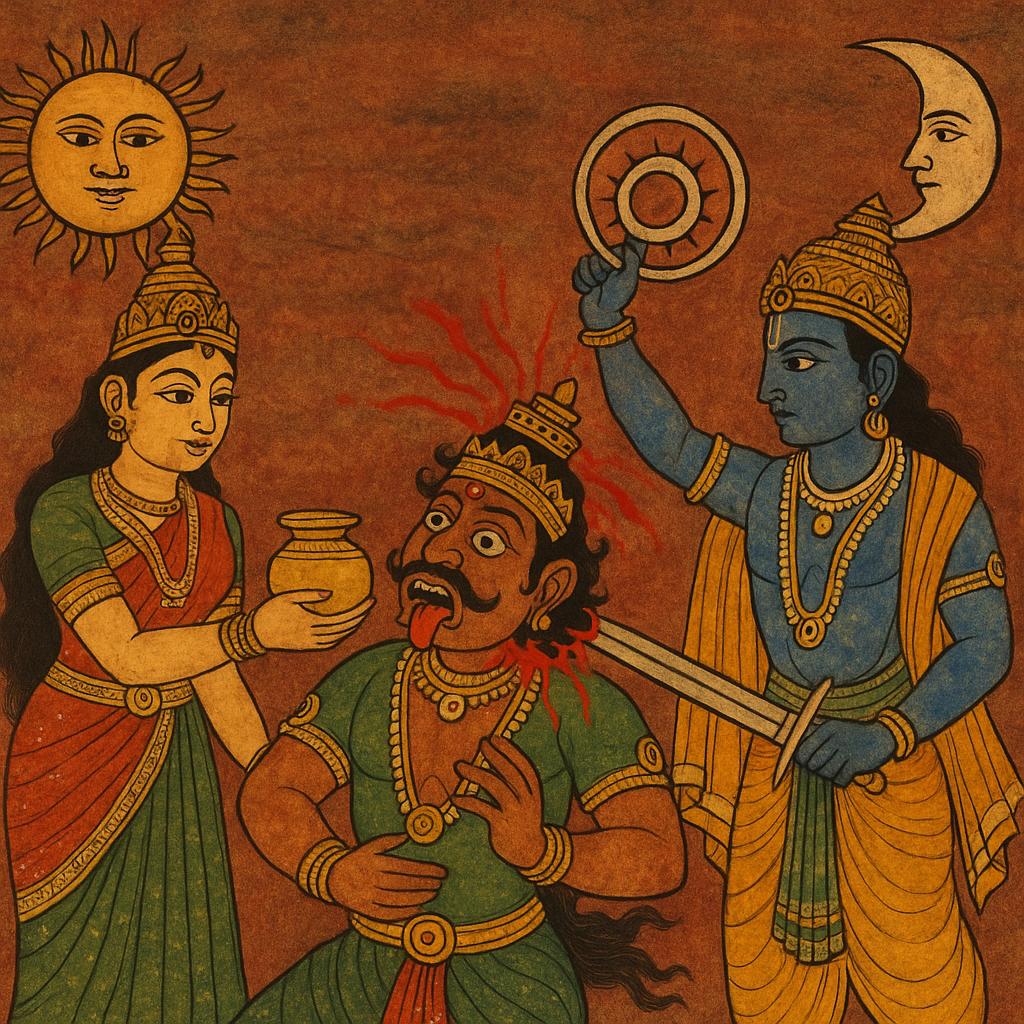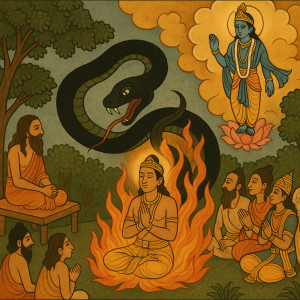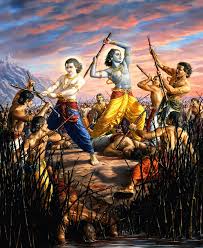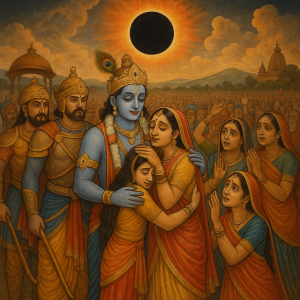The Deception of Rāhu
During the legendary churning of the Ocean of Milk (Samudra Manthana), when the nectar of immortality (amṛta) was finally secured through the divine intervention of Lord Viṣṇu in His enchanting form as Mohinī-mūrti, not all the asuras (demons) were deceived.
One particularly cunning and envious asura named Svarbhānu saw through the illusion. Cloaking himself in the appearance and aura of a deva, he stealthily joined the line of demigods as they awaited their share of the nectar.
Svarbhānu seated himself between Sūrya (the sun-god) and Candra (the moon-god), pretending to be one of them. When Mohinī, with her divine beauty and bewitching smile, began to distribute the nectar, she unknowingly handed him a portion.
Just as Svarbhānu was about to drink, Sūrya and Candra recognized the deception and exclaimed:
“He is not one of us! He is an asura in disguise!”
At that very moment, Lord Viṣṇu, ever vigilant, seized His Sudarśana chakra and, in a single, swift motion, beheaded Svarbhānu.
The Transformation into Rāhu and Ketu
But the asura had already tasted a drop of the nectar. Its divine potency rendered him immortal, and though decapitated, he did not die. Instead, his body split into two distinct immortal beings:
- His severed head, filled with envy and ambition, became Rāhu.
- His headless torso, radiating wrath and revenge, became Ketu.
Thus were born the two shadow planets—Rāhu and Ketu—who, though dismembered, retained mystical powers due to that single drop of amṛta.
Rāhu’s Vengeance Against the Sun and Moon
Since that day, Rāhu harbored a deep grudge against Sūrya and Candra, who had exposed his deceit. Burning with vengeance, he vowed to punish them again and again.
Therefore, from time to time, Rāhu chases and “swallows” the Sun and the Moon, causing them to momentarily disappear. But being only a head, he cannot retain them for long, and so they reappear. This celestial event is known as an eclipse—Rāhu-grastha for a solar eclipse and a similar term used for lunar eclipses.
Cosmic Order and Vaiṣṇava Understanding
Though Rāhu is considered a malefic graha (planetary influence) that causes illusion, confusion, and material upheaval, he remains under the supreme control of Lord Viṣṇu. Even his disturbing influence serves a divine purpose—reminding souls in the material world of their impermanence and the workings of karma.
In the Bhagavad-gītā (10.30), Lord Kṛṣṇa proclaims:
“Among the Daityas I am Prahlāda; among subduers I am time; among beasts I am the lion, and among birds I am Garuḍa.”
Though Rāhu is not directly named, the verse affirms that even mighty beings among the asuras can be empowered instruments in the Lord’s plan—to uplift, to punish, or to bewilder as needed for the purification of souls.
Lessons to Be Learned
- Envy and deceit may yield fleeting gains, but divine truth and protection always prevail.
- The Supreme Lord sees through all disguises and swiftly upholds justice.
- Rāhu and Ketu, though feared in astrology, are divinely appointed agents within the cosmic system of karma.
- Eclipses symbolize the transient beauty of material existence and serve as a wake-up call to spiritual reality.
- True immortality is not achieved through nectar, but through bhakti—loving devotional service to the Supreme Lord.



